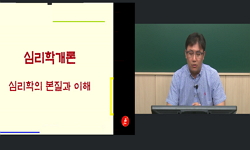본 연구의 목표는 자기자비와 분노반추의 관계에서 유머스타일의 매개효과를 검증하는 것이었다. 총 347명의 성인들을 대상으로 자기자비, 분노반추, 유머스타일을 각각 설문방식으로 측정...
http://chineseinput.net/에서 pinyin(병음)방식으로 중국어를 변환할 수 있습니다.
변환된 중국어를 복사하여 사용하시면 됩니다.
- 中文 을 입력하시려면 zhongwen을 입력하시고 space를누르시면됩니다.
- 北京 을 입력하시려면 beijing을 입력하시고 space를 누르시면 됩니다.
자기자비가 분노반추에 미치는 영향 : 유머스타일의 매개효과 = The influences of self-compassion on anger rumination : the mediation effect of humor styles
한글로보기https://www.riss.kr/link?id=T14670420
- 저자
-
발행사항
부천 : 가톨릭대학교 상담심리대학원, 2018
-
학위논문사항
학위논문(석사) -- 가톨릭대학교 상담심리대학원 , 상담학과 상담심리학 전공 , 2018.2
-
발행연도
2018
-
작성언어
한국어
- 주제어
-
DDC
158.3 판사항(21)
-
발행국(도시)
경기도
-
형태사항
vi, 70 p. ; 26 cm.
-
일반주기명
지도교수: 이수림
가톨릭대학교 (성심) 논문은 저작권에 의해 보호받습니다.
참고문헌 포함: p. 44~61 -
UCI식별코드
I804:41027-200000006502
- 소장기관
-
0
상세조회 -
0
다운로드
부가정보
국문 초록 (Abstract)
첫째, 자기자비는 분노반추와 유의한 부적 상관을 나타냈고, 관계적 유머와 자기고양적 유머에 유의한 정적 상관을, 공격적 유머와 자멸적 유머에는 유의한 부적 상관을 나타냈다. 또한 분노반추는 자기고양적 유머와 유의한 부적 상관을 나타냈으며, 공격적 유머와는 유의한 정적 상관을 나타냈다.
둘째, 자기자비와 분노반추의 관계에서 공격적 유머의 부분 매개효과를 확인했다.
마지막으로 연구의 의의와 제한점 및 후속 연구에 대한 제언을 논의하였다.
주요어: 자기자비, 분노반추, 유머스타일
본 연구의 목표는 자기자비와 분노반추의 관계에서 유머스타일의 매개효과를 검증하는 것이었다. 총 347명의 성인들을 대상으로 자기자비, 분노반추, 유머스타일을 각각 설문방식으로 측정한 후, SPSS 23.0을 사용하여 상관 분석, 회귀분석을 이용한 매개효과 검증을 수행하였다. 각 변인을 측정하기 위해, 한국판 자기자비 척도(SCS), 한국판 분노반추척도(K-ARS), 유머스타일 척도(HSQ)를 사용하였으며, 본 연구의 결과를 요약하면 다음과 같다.
첫째, 자기자비는 분노반추와 유의한 부적 상관을 나타냈고, 관계적 유머와 자기고양적 유머에 유의한 정적 상관을, 공격적 유머와 자멸적 유머에는 유의한 부적 상관을 나타냈다. 또한 분노반추는 자기고양적 유머와 유의한 부적 상관을 나타냈으며, 공격적 유머와는 유의한 정적 상관을 나타냈다.
둘째, 자기자비와 분노반추의 관계에서 공격적 유머의 부분 매개효과를 확인했다.
마지막으로 연구의 의의와 제한점 및 후속 연구에 대한 제언을 논의하였다.
주요어: 자기자비, 분노반추, 유머스타일
다국어 초록 (Multilingual Abstract)
The purpose of the study is to verify the role of humor style as mediator variables between self-compassion and anger rumination.
Self-report questionnaire were conducted for measure self-compassion, anger rumination and humor styles to totally 347 adults. SPSS 23.0 were used for data analysis, including correlation analysis, regression analysis for validate the mediation effects. In order to assess each variable, Korean Version of the Self-Compassion Scale(SCS), K-Anger Rumination Scalse(K-ARS), Humor Styles Questionnaire(HSQ) were included in questionnaire. Following results are the brief summary of the study.
First, self-compassion showed significantly negative correlation with anger rumination, positive correlation with affiliative humor and self-enhancing humor, negative correlation with aggressive humor and self-defeated humor. In addition, anger rumination showed significantly negative correlation with self-enhancing humor, positive correlation with aggressive humor.
Secondly, aggressive humor appeared to have partial mediation effect on relationship between self-compassion and anger rumination.
Lastly the implication, limitation and points of proposal for follow up research were discussed.
The purpose of the study is to verify the role of humor style as mediator variables between self-compassion and anger rumination. Self-report questionnaire were conducted for measure self-compassion, anger rumination and humor styles to totally 3...
The purpose of the study is to verify the role of humor style as mediator variables between self-compassion and anger rumination.
Self-report questionnaire were conducted for measure self-compassion, anger rumination and humor styles to totally 347 adults. SPSS 23.0 were used for data analysis, including correlation analysis, regression analysis for validate the mediation effects. In order to assess each variable, Korean Version of the Self-Compassion Scale(SCS), K-Anger Rumination Scalse(K-ARS), Humor Styles Questionnaire(HSQ) were included in questionnaire. Following results are the brief summary of the study.
First, self-compassion showed significantly negative correlation with anger rumination, positive correlation with affiliative humor and self-enhancing humor, negative correlation with aggressive humor and self-defeated humor. In addition, anger rumination showed significantly negative correlation with self-enhancing humor, positive correlation with aggressive humor.
Secondly, aggressive humor appeared to have partial mediation effect on relationship between self-compassion and anger rumination.
Lastly the implication, limitation and points of proposal for follow up research were discussed.
목차 (Table of Contents)
- Ⅰ 서 론 1
- 1. 연구의 필요성 및 목적 1
- 2. 이론적 배경 7
- 1) 분노반추 7
- 2) 자기자비 10
- Ⅰ 서 론 1
- 1. 연구의 필요성 및 목적 1
- 2. 이론적 배경 7
- 1) 분노반추 7
- 2) 자기자비 10
- 3) 유머와 유머스타일 17
- 4) 자기자비, 분노반추, 유머스타일 간의 관계 23
- 3. 연구문제 및 가설 27
- Ⅱ. 연구 방법 29
- 1. 연구 대상 29
- 2. 측정 도구 29
- 1) 한국판 자기자비 척도 29
- 2) 한국판 분노반추척도 30
- 3) 유머스타일 척도 31
- 3. 분석 방법 32
- Ⅲ. 연구 결과 33
- 1. 조사 대상자의 인구 통계학적 특성 33
- 2. 측정변인 간의 기술통계 및 관계 33
- 3. 자기자비와 분노반추의 관계에서 유머스타일의 매개효과 검증 34
- Ⅳ. 논 의 39
- Ⅴ. 참고문헌 44
- Ⅵ. 부 록 62
- Ⅶ. 영문 논문제출서 68
- Ⅷ. 영문 인준서 69
- Ⅸ. 영문 초록(ABSTRACT) 70












